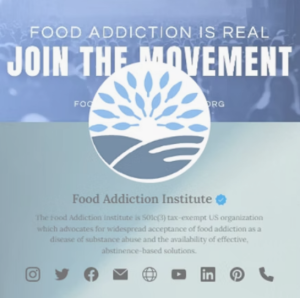Depression Linked To Artificially Sweetened Ultra processed Foods
Are you feeling down lately?
You might want to check your diet and see how much ultra processed food (UPF) you are eating.
A new study has found that **eating greater amounts of ultra processed food and drinks, especially if those items are artificially sweetened, may be linked to the development of depression**.
Ultra processed foods (UPF) are those that contain ingredients that are rarely or never used in kitchens, such as preservatives, emulsifiers, artificial colorings and sweeteners. They include junk food items like
- chips
- soda
- many ready-to-eat meals
- yogurts
- many ready-to-eat meals
- packaged bread
- prepackaged soups, sauces
- pleasure foods such as hot dogs, sausages, French fries, store-bought cookies, cakes, candies, doughnuts, and ice cream
- as well as many more foods and drinks containing artificial sweeteners.
“Our study focused on the link between foods and subsequent risk of developing a new episode of depression,” said study coauthor Dr. Andrew T. Chan, a Daniel K. Podolsky professor of medicine at Harvard Medical School and professor of immunology and infectious diseases at Harvard T.H. Chan School of Public Health in Boston.
The study, published in the journal JAMA Psychiatry, followed more than 100,000 women for 10 years and found that those who consumed the most ultra processed foods (9 portions or more per day) had a 50% higher risk of developing depression than those who consumed the least (4 portions or less per day).
The researchers also found that only foods and drinks made with artificial sweeteners were associated with an increased risk of depression. This suggests that artificial sweeteners may have a negative impact on the brain and mood.
She added that
- One possible explanation for the link between ultra processed foods and depression is that these foods can cause chronic inflammation in the body, which is a risk factor for many diseases, including depression.
- Another possibility is that ultra processed foods can alter the gut microbiome, which is involved in regulating mood and mental health.
“The study suggests an association between consumption of ultra processed foods and depression, with an about 50% higher risk for those consuming 9 portions (per day) or more (the top 20%) compared to those consuming 4 portions or less,” Gunter Kuhnle, a professor of food and nutritional science at the University of Reading in the UK.
The study does not prove causation, but it adds to the growing evidence that ultra processed foods are harmful to our health and well-being.
“However, there is also the possibility that for individuals with chronic depression, ultra processed food can worsen their condition,” said Chan, who is also chief of the clinical and translational epidemiology unit at Massachusetts General Hospital in Boston.
For one, there is a known link between ultra processed foods and chronic inflammation, Chan said.
Inflammation is a root cause of many chronic diseases. For example, studies have linked ultra processed foods colorectal cancer in men and heart disease and early death in both men and women.
“Literally hundreds of studies link ultra processed foods to obesity, cancer, cardiovascular disease, and overall mortality,” Marion Nestle, the Paulette Goddard professor emerita of nutrition, food studies and public health at New York University.
There’s a link to dementia as well.
- If more than 20% of a person’s daily calories come from ultra processed foods, the risk of cognitive decline rises about 28%, according to a 2022 study.
- For a 2,000-calories-a-day diet, that would be 400 calories.
- In comparison, a small order of fries and a regular cheeseburger from McDonald’s together contain a total of 530 calories.
“There is also a link between ultra processed food and disruption of the gut microbiome,” Chan said. “This is an important potential mechanism linking ultra processed food to depression since there is emerging evidence that microbes in the gut have been linked with mood through their role in metabolizing and producing proteins that have activity in the brain.”
The researchers controlled for a number of other potential causes of depression, such as age, body mass index (BMI), total calories, menopausal hormone therapy, use of alcohol, sleep duration, pain, and other diseases, such as diabetes and hypertension.
“To the extent that sweet beverages and ultra processed foods offer an acute, if fleeting, ‘comfort,’ it is also plausible that the early discomforts of burgeoning depression motivate a greater reliance on just such foods,” said Dr. David Katz, a specialist in preventive and lifestyle medicine.
It’s also possible that depression and a higher intake of “junk” and “comfort” foods “feed on each other,” said Katz, who founded the nonprofit True Health Initiative, a global coalition of experts dedicated to evidence-based lifestyle medicine.
It’s also difficult to separate any impact of diet on depression risk compared with other known risk factors, such as a family history of depression, high stress levels, and the lack of a supportive social network, said Dr. Paul Keedwell, a consultant psychiatrist and fellow of the Royal College of Psychiatrists.
“The list of factors associated with UPF consumption, such as greater BMI, more smoking and less exercise, emphasizes just how many confounding factors there may be,” said Keith Frayn, Emeritus Professor of Human Metabolism at the University of Oxford.
“Nevertheless, the authors appear to have adjusted for these as carefully as possible, and the relationship between artificial sweeteners and depression stands out clearly,” Frayn said.
If you are struggling with depression or other mental health issues, please seek professional help. Eating better may help you feel better, but it is not a substitute for professional treatment for food addiction and depression. Remember that you are not alone and there is hope for recovery.
CNN Article: Artificially sweetened ultraprocessed foods linked to depression in women, study finds
Cited Research
Samuthpongtorn C, Nguyen LH, Okereke OI, et al. Consumption of Ultraprocessed Food and Risk of Depression. JAMA Netw Open. 2023;6(9):e2334770. doi:10.1001/jamanetworkopen.2023.34770
Guo X, Park Y, Freedman ND, Sinha R, Hollenbeck AR, et al. (2014) Sweetened Beverages, Coffee, and Tea and Depression Risk among Older US Adults. PLOS ONE 9(4): e94715. https://doi.org/10.1371/journal.pone.0094715
Join the Food Addiction Institute community! Become a member, and engage in online chats and forums.


